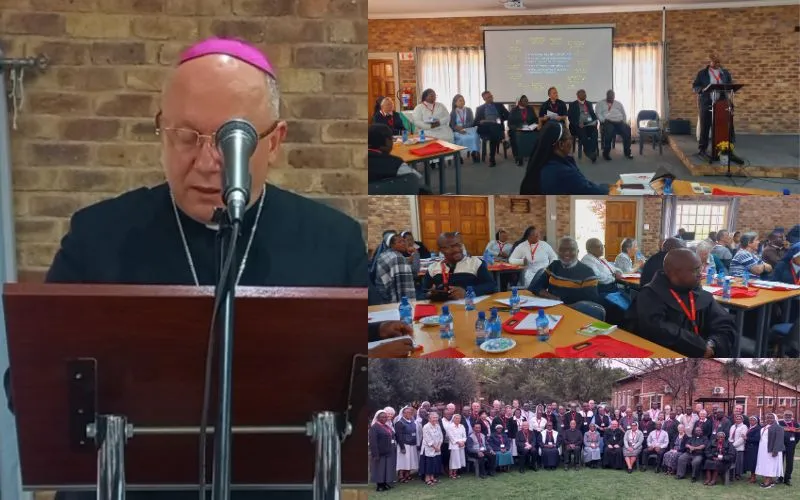He added in his address at the four-day event that started on Monday, September 16, “While the call for open communication and collaboration is clear, there are challenges. One primary challenge is ensuring that all voices are genuinely heard, especially in large and diverse communities.”
The Nuncio acknowledged that while the Synodal process seeks to involve everyone in the life and mission of the Church, there are obstacles to achieving full participation. “Cultural, linguistic, and generational differences can create barriers to effective communication,” he noted.
Speaking on the evolving role of the Church in fostering participation, Archbishop Jagodziński noted that inclusivity is essential to synodality but also presents significant challenges.
The Polish-born diplomat, who also represents the Holy Father in Lesotho, Botswana, Namibia, and Eswatini, noted that synodality, which focuses on listening to and engaging all members of the Church, depends on ensuring that every voice is heard and respected.
“The Church must work towards the inclusivity of all voices, from Clergy to Laity, to reflect the true spirit of synodality,” he said, adding that synodality is built on the principle of mutual listening, where “the hierarchy listens to the Laity and vice versa.”
This model, he said at the event organized under the theme, “synodality”, allows all members of the Church to contribute their perspectives on key issues. “Everyone is encouraged to participate and express their thoughts and aspirations, which ensures that decisions reflect the true needs of the people,” he said.
Pope Francis has consistently promoted the need for a “culture of encounter,” the Nuncio said, explaining that the encounter requires “active listening”. He said that this listening is not passive but involves engaging with the concerns, insights, and experiences of others.
The Nuncio stressed that listening to those on the margins, including the poor and the disillusioned, is critical to creating an inclusive Church. “The Church cannot afford to marginalize any voice, especially those who feel disconnected,” he stated.
At the local level, the Nuncio encouraged Parishes, Dioceses, and Religious communities to create spaces for open dialogue and participation, suggesting practical measures like town hall meetings, listening sessions, and small group discussions to ensure that diverse voices within the congregation are heard.
However, the Nuncio pointed out that despite the inclusive framework of the Synodal process, certain groups often dominate discussions. “Inclusivity means making sure that no voice is drowned out, and this remains a challenge,” he explained.








